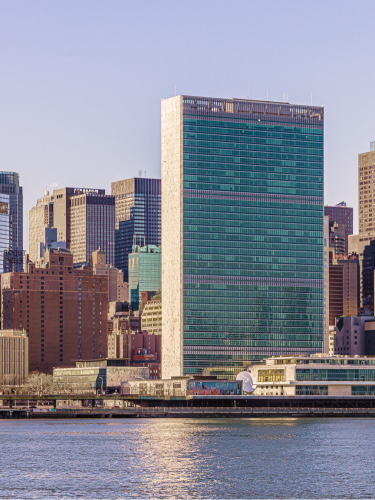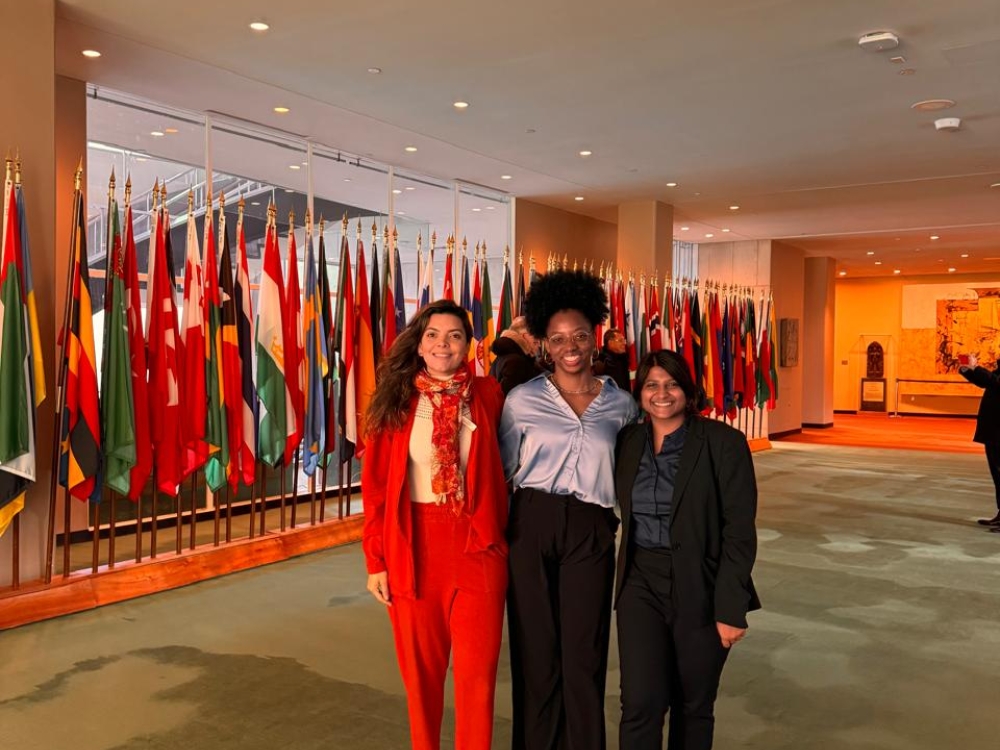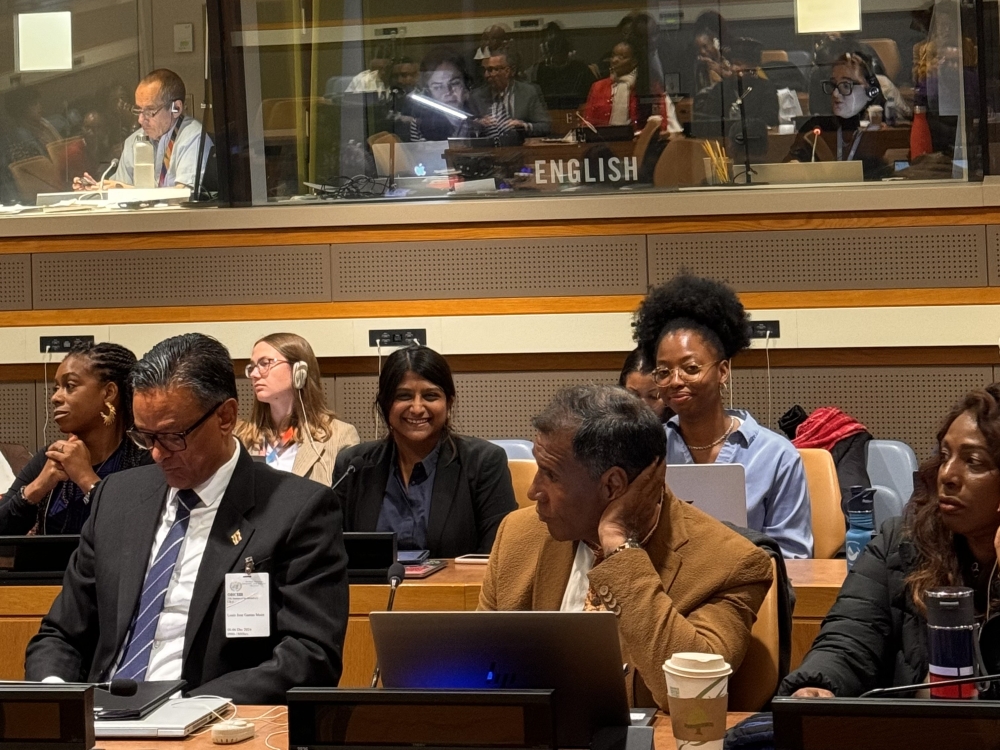
December 19, 2024, NEW YORK | On December 5th, the Columbia Law School Smith Family Human Rights Clinic and Brazilian NGO Redes da Maré presented at the United Nations session on Principles, Provisions and Pathways to Reparatory Justice for Africans and People of African Descent.
Clinic students Muskan Tibrewala LLM '25 and Melody Dodoo JD '26 and Clinic Supervising Attorney Luna Borges were at the UN advocating before its Working Group of Experts on People of African Descent. This Group studies the problems of racial discrimination faced by people of African descent living in the diaspora and, to that end, holds public meetings with Governments, non-governmental organizations, and other experts to gather relevant information for their reports. Created in 2002 by the Commission on Human Rights, the Working Group reports to the United Nations Human Rights Council and the General Assembly on activities relating to the mandate.

During the session, the Clinic students delivered a speech they co-wrote with Redes da Maré, a large civil society organization based in Rio de Janeiro working to influence public security policy, as well as promoting the right to education, health, art, culture and urban and socio-environmental rights for residents of the Maré favelas. Maré is the largest group of informal and impoverished neighborhoods (16 total) in Brazil. With a total population of 140,000, 62% of whom identify as Black or Brown, Maré is one of the most densely populated areas in all of the Americas—more than even Manhattan.
During their testimony to the UN, the students vocalized perspectives on Reparatory Justice for Black and Indigenous communities in Brazil:
Similarly to other favelas and territories mostly composed of Afro-descendants, the residents of Maré have been historically targeted and neglected by the state. The state targets them through over-criminalization and stigmatization, and neglects their lack of access to socio-economic rights. Today, we ask you to imagine what a world with reparations would look like for Maré, for Brazil - the largest African diaspora – and for Africans and people of African descent.
The speech, link to which can be found here, highlighted how reparative policies should be framed within the vision of "well-being" that most supports Black and Indigenous populations. This framework seeks harmony with nature and social justice. The students’ arguments were based on data showcasing the specific impacts of racism and inequalities on Black and Indigenous populations, on areas related to Economic Justice; Public Safety; Health; Transnational Corporations’ exploitation; Land redistribution, Climate justice, among others.

According to Luna Borges, Lecturer in Law and Clinic Supervising Attorney, “Seeing so many brilliant minds together to discuss just reparations for people of African descent living in complex and diverse contexts in the Americas instills radical hope for social justice. We must continue our collective work to have reparatory justice in legally binding documents, as another Brazilian NGO, Geledés, recommended during the session.”
The dialogue promoted by the Working Group focused on examining the factual and legal basis for claims for just reparations, with the objective of putting forward common principles and pathways “to reparatory justice for Africans and people of African descent in the court of public opinion and courts of law”. The dialogue spanned from challenges to discussing the legacies of enslavement and colonialism, human rights violations, as well as concrete measures for reparatory justice in United Nations mechanisms and national laws.
This activity is part of a larger partnership between the Human Rights Clinic and Redes da Maré. As stressed by Andreza Jorge, advocacy analyst in Redes da Maré, “It is crucial to have partnerships sustained by a mutual willingness to amplify representation from the voices and perspectives currently marginalized, even in traditional human rights consultation processes. An in-person meeting showcasing Afro descendants’ perspectives from Latin America should have way more representation from grassroots community organizations. We are working to expand partnerships and the presence of the voices of the most impacted communities.”
Read more about how Redes da Maré has been fighting for the rights of the population living in favela da Maré for over 20 years here.
***
The Human Rights Clinic prepares students for lifelong careers in social justice advocacy around the globe. Through the Clinic, students join a community of advocates working to promote human rights and to recalibrate the global power imbalances that drive racial, economic, gender and political inequality, exploitation, threats to physical security, poverty, and environmental injustice. Through community organizing, social movement coalitions, fact-finding, reporting, litigation, media engagement, advocacy, training, and innovative methods, the Clinic seeks to prevent abuse, advance respect for human rights, and promote accountability for violations. Embedded in the Clinic’s work is a commitment to solidarity, equality, and mutual exchange in transnational partnerships; respect for rights-holder autonomy, voice, and power; and diversity, full participation, and justice within the human rights field.
Follow us on Twitter: @CLSHumanRights
